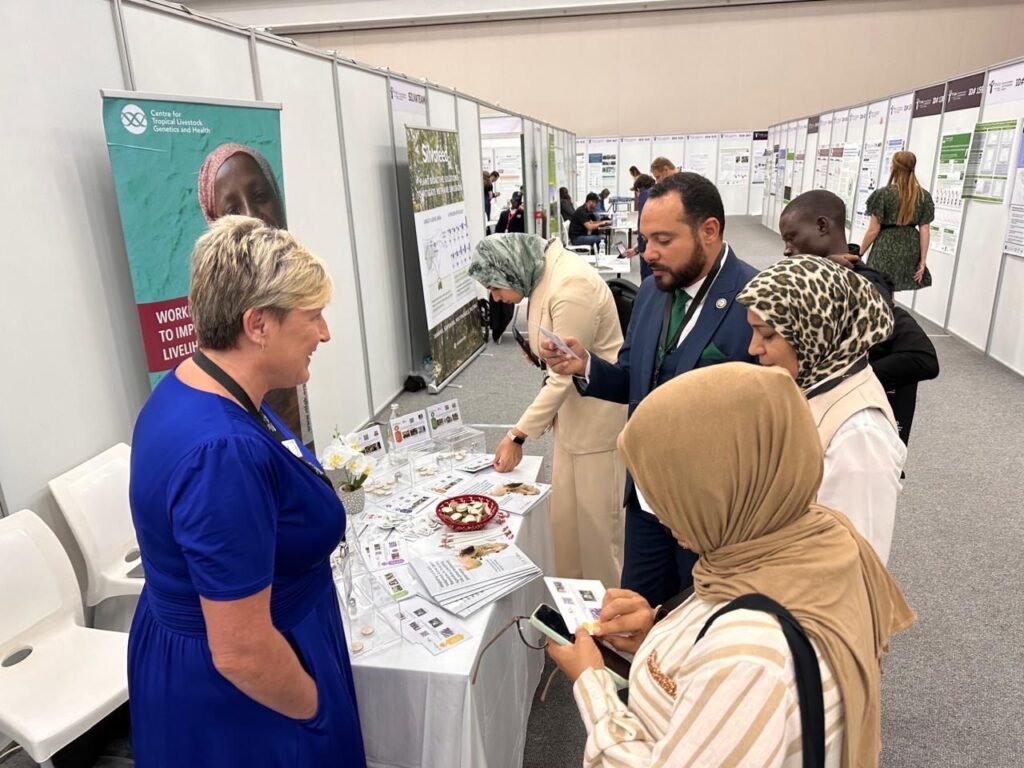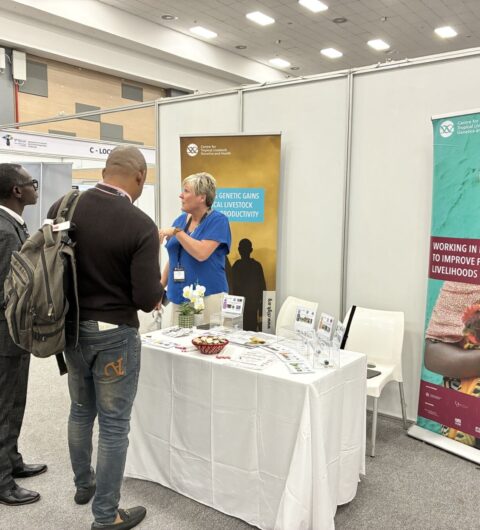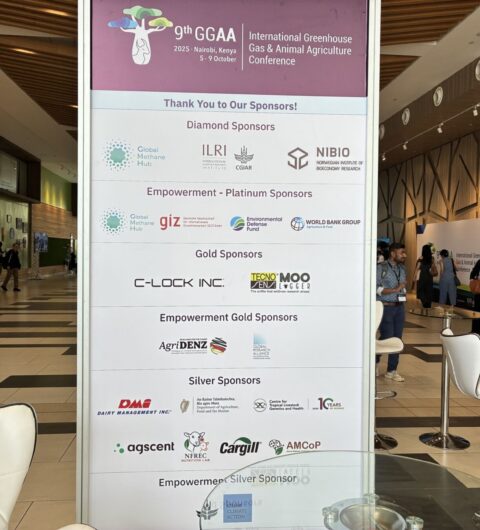Organized by the International Livestock Research Institute (ILRI) and the Norwegian Institute of Bioeconomy Research (NIBIO), GGAA2025 brought together leading scientists, policymakers, and industry professionals from around the world to address one of agriculture’s most pressing challenges — reducing greenhouse gas (GHG) emissions from animal agriculture.

Jen Meikle, CTLGH Operations Manager, engages with delegates at the Exhibition Stand.
The five-day conference provided a dynamic platform for collaboration, research exchange, and innovation. Participants explored the latest developments in GHG measurement, modelling, and mitigation, alongside discussions on genetics, feed efficiency, manure management, and sustainable on-farm practices.

Advancing Climate-Smart Livestock Systems
At our exhibition stand and during networking sessions, we had the opportunity to talk about our groundbreaking research on improving productivity, methane measurements and livestock genetics. Further, we discussed how science and innovation are driving meaningful change in agricultural sustainability.
Through support from the Gates Foundation, CTLGH’s research hubs in Kenya, Ethiopia, and here at the Roslin Institute in Scotland, are pioneering genetic and bioscientific solutions to breed animals that are more productive, resilient, and emit fewer greenhouse gases.
“By integrating genetics with practical solutions, CTLGH is contributing to climate-smart livestock systems that enhance productivity and sustainability in low- and middle-income countries.”
Professor Mizeck Chagunda, Director of CTLGH and Chair of Tropical Livestock Genetics at the University of Edinburgh.

Global Collaboration for a Sustainable Future
GGAA2025 highlighted the critical role of livestock in both contributing to and being affected by climate change.
The conference reinforced the importance of science-driven collaboration across governments, academia, and industry to achieve global emission-reduction targets.
Reflecting on the event, Professor Chagunda shared:
“It’s inspiring to see how far the science has come since I first attended GGAA in 2013, when we were experimenting and developing early methane measurement technologies.
“Today, these insights are being applied globally through examples such as the use of the Laser Methane Detector in livestock and other innovations. Thanks to the dedication of our collaborators, early-career scientists, and students.”
About GGAA2025
The International Greenhouse Gas and Animal Agriculture Conference (GGAA) is the world’s premier forum for advancing research, policy, and innovation to mitigate emissions from livestock production. The 2025 edition in Nairobi marks a milestone in promoting sustainable agricultural practices, with a strong focus on challenges and opportunities in tropical and developing regions.
